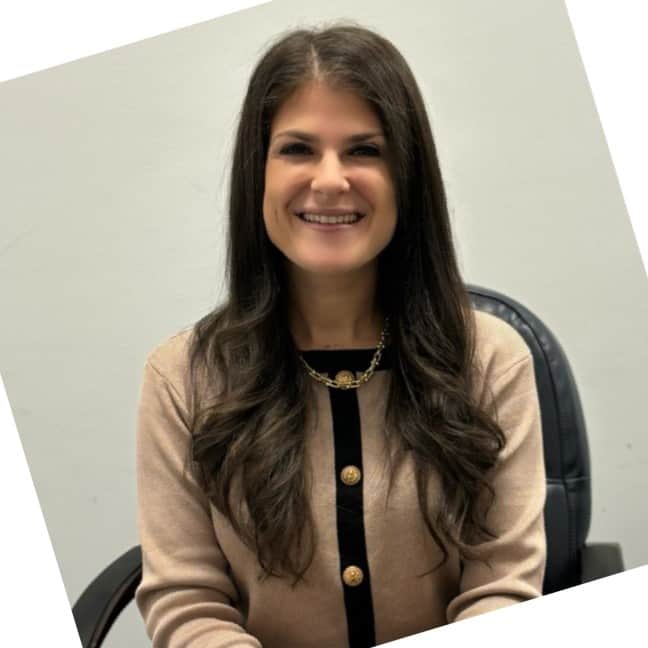Understanding Opioid Use & Fentanyl Addiction Treatment In San Diego
Overcoming a fentanyl addiction can pose significant challenges, but at Right Path Rehab, we offer the resources, clinical expertise, and compassionate care needed to support your full fentanyl addiction treatment journey. Our San Diego-based facility specializes in evidence-based approaches for treating opioid dependence, including medication-assisted treatment (MAT) and personalized care plans for individuals facing opioid use disorder.
We understand that substance use disorder affects every aspect of a person’s life, which is why our programs focus on physical, emotional, and psychological healing to promote long-term recovery.
What is Fentanyl?
Fentanyl is a powerful synthetic opioid originally developed in 1959 and introduced in the 1960s as an intravenous anesthetic. Since then, it has been used in clinical settings to manage severe pain, particularly in cancer patients and during major surgery. Fentanyl works by binding to opioid receptors in the brain, which alters pain perception and induces a sense of euphoria.
Although fentanyl is effective when prescribed and monitored carefully, its extreme potency—up to 100 times stronger than morphine—makes it highly prone to misuse. When sold illegally, fentanyl is often pressed into counterfeit pills or mixed with substances like heroin, cocaine, or methamphetamine without the user’s knowledge. This significantly increases the risk of opioid overdose, as users may unintentionally ingest a lethal dose while attempting to use another drug.
We’ve Helped Thousands of Individuals Overcome Drug and Alcohol Addiction
Why is Fentanyl So Dangerous?
The danger of illegal fentanyl – one of the stronger opioids – lies primarily in its extraordinary potency and the ease with which it can cause a fatal fentanyl overdose. According to the Drug Enforcement Administration, fentanyl is estimated to be 50 to 100 times more potent than morphine and about 50 times more potent than heroin. This means that even a tiny amount, as little as two milligrams, can lead to overdose and even death.
The fact that drug dealers are mixing fentanyl with other illicit drugs (to make cheaper fentanyl) exacerbates this risk, as users may be unaware they are ingesting such a powerful substance.
Additionally, fentanyl’s rapid onset effect – depressing the central nervous system and respiratory functions – can lead to a swift and fatal outcome, often before medical personnel arrive. The unpredictability of the purity of illegal fentanyl makes it an even more insidious threat, contributing to the alarming rise in fentanyl overdose deaths.
When an overdose occurs, it’s essential to dispense naloxone nasal sprays if available while waiting for medical support.
If you or a loved one are ready to overcome drug or alcohol abuse, our addiction specialists are here to guide you through every step. Many of our dedicated staff members are in long-term recovery themselves and understand firsthand the challenges of the recovery journey. This personal experience, combined with our professional expertise, allows us to offer compassionate, effective support tailored to your unique needs.

What Are the Effects of Fentanyl?
Fentanyl produces intense pain relief and euphoria but also brings a host of dangerous side effects. These may include drowsiness, dizziness, nausea, confusion, and respiratory depression—the latter being a leading cause of opioid overdose deaths. Because fentanyl is significantly more potent than other opioids, even a small miscalculation in dosage can lead to a fatal outcome.
The misuse of fentanyl and other opioid drugs contributes directly to the growing number of people struggling with substance use disorder. Prolonged use often results in opioid use disorder, characterized by uncontrollable cravings, the inability to stop taking opioids, and ongoing use despite harmful consequences.
Successfully managing fentanyl addiction requires a combination of disorder medications like methadone, buprenorphine, and naltrexone, alongside evidence-based behavioral treatment strategies. These medications can reduce cravings, stabilize mood, and make recovery safer and more sustainable.
Signs and Symptoms of Fentanyl Use or Opioid Use Disorder
Recognizing the signs of fentanyl addiction is a critical step toward intervention and recovery. Early detection allows individuals to receive treatment before further damage occurs.
Common symptoms of fentanyl addiction include:
- Tolerance: Needing higher doses over time to achieve the same effects.
- Compulsive Use: Using fentanyl becomes the central focus of daily life.
- Loss of Control: Difficulty regulating how much or how often fentanyl is used.
- Social Withdrawal: Pulling away from friends, family, and meaningful activities.
- Neglect of Responsibilities: School, work, or home duties are frequently ignored.
- Physical Decline: Weight loss, poor hygiene, frequent illness, and flu-like symptoms.
- Financial Trouble: Spending large amounts of money or engaging in risky behavior to obtain the drug.
- Risky Behavior: Sharing needles, unsafe sex, or operating vehicles while under the influence.
- Persistent Use Despite Harm: Continued fentanyl use even when it damages health, relationships, or legal standing.
Recovery Starts at Our Drug and Alcohol Rehab by Requesting a Call
"*" indicates required fields
Understanding Fentanyl Withdrawal Symptoms
Fentanyl withdrawal can be extremely uncomfortable, especially for those who have used high doses or taken the drug for long periods. These symptoms are the body’s reaction to a sudden absence of opioids, particularly when the brain’s opioid receptors have become dependent on the drug to function normally.
Common withdrawal symptoms include:
- Intense cravings
- Anxiety and restlessness
- Muscle aches and joint pain
- Sweating, chills, and goosebumps
- Nausea, vomiting, and diarrhea
- Insomnia and agitation
- Rapid heart rate and elevated blood pressure
- Hallucinations or paranoia in severe cases
Seeking medical help during this stage is essential. At Right Path Rehab, our team provides medications for opioid use—like naltrexone and methadone—that help alleviate symptoms, reduce cravings, and make detox safer and more manageable.
Recognizing the Signs of Fentanyl Overdose
Fentanyl overdose can happen quickly and is often fatal without fast intervention. Knowing the warning signs can help save a life. Common overdose symptoms include:
- Extreme drowsiness or unresponsiveness
- Slowed or stopped breathing
- Pinpoint pupils
- Cold, clammy skin
- Bluish lips or fingernails
- Loss of consciousness
- Weak or absent pulse
Fentanyl misuse doesn’t just cause short-term euphoria—it alters brain chemistry, increases withdrawal symptoms, and can result in permanent damage or death. Many individuals who experience withdrawal symptoms after they stop taking fentanyl face a high risk of relapse and overdose if not properly treated.
High-Quality Care for Opioid Addiction
At Right Path Rehab, we offer evidence-based opioid use disorder treatment for individuals affected by substance abuse, drug abuse, and chronic substance use disorder. Our center provides safe treatment options such as medically supervised detox, methadone, and buprenorphine—proven opioid use disorder medications that reduce cravings and ease withdrawal.
Whether you’re seeking help for yourself or someone else, our addiction specialists are here to guide you through every step of recovery. Call us today to begin your path to healing.
How We Treat Fentanyl Addiction At Right Path Rehab
At Right Path Rehab in San Diego, we recognize the urgency of the fentanyl crisis and the complexity of treating substance use disorder. Our evidence-based programs provide a full continuum of care—blending medical detox, behavioral health therapies, and structured aftercare to support successful recovery from fentanyl and other opioid drugs.
Medical Detox
Fentanyl withdrawal can be severe. Our 24/7 medically supervised detox helps patients safely manage the withdrawal process. We offer medications for opioid use disorder—including methadone, buprenorphine, and naltrexone—to ease symptoms, reduce cravings, and stabilize individuals for the next phase of recovery.
Residential Treatment
Our residential treatment program provides round-the-clock care in a structured, supportive environment. Patients live on-site and participate in individual therapy, group sessions, wellness activities, and life-skills development. This setting allows for intensive healing, away from everyday triggers and distractions.
Partial Hospitalization Program (PHP)
PHP offers a high level of care without 24-hour residence. Patients attend counseling, therapy, and recovery education during the day and return home in the evenings. This model is ideal for those transitioning from inpatient care or seeking an alternative to residential treatment.
Dual Diagnosis Treatment
According to the Mental Health Services Administration, co-occurring mental disorders and substance use often complicate recovery. Our dual diagnosis program treats both conditions together, offering coordinated care from therapists and medical professionals for lasting results.
Relapse Prevention
Relapse prevention is a core focus across all levels of care. Through cognitive behavioral therapy (CBT), recovery coaching, and custom relapse response plans, we help patients recognize triggers, develop coping strategies, and stay grounded in their recovery goals.
Aftercare & Recovery Support
Recovery doesn’t stop after treatment ends. Our aftercare services include support groups, regular follow-ups, and ongoing access to therapy and educational resources. This long-term support helps patients stay connected, confident, and committed to a substance-free life.
At Right Path Rehab, we align with national guidelines from the Drug Enforcement Administration, SAMHSA, and current behavioral health statistics to provide high-quality care for individuals impacted by drug use, drug abuse, and prescription opioids. If you or a loved one is struggling, we’re here to help you explore your treatment options and reclaim your future.
Therapies That Support Long-Term Recovery
Our clinical and wellness therapies are designed to treat the whole person—mind, body, and spirit.
- Cognitive Behavioral Therapy (CBT): Helps patients challenge negative thinking and behaviors tied to fentanyl use.
- Dialectical Behavior Therapy (DBT): Teaches emotional regulation, distress tolerance, and relationship skills.
- Individual & Group Therapy: Combines personalized treatment with peer support and shared healing.
- Family Therapy: Rebuilds trust and strengthens communication among loved ones.
- Motivational Interviewing (MI): Encourages internal motivation and goal-setting.
- Acceptance and Commitment Therapy (ACT): Builds psychological flexibility and commitment to values-driven action.
- Wellness Therapy: Promotes mindfulness, stress reduction, and physical balance.
- Art Therapy: Allows creative expression as a pathway to emotional clarity.
- SMART Recovery: Offers non-12-step tools for motivation, self-control, and balanced living.
Overcoming Fentanyl Addiction and Drug Abuse Through Fentanyl Addiction Treatment
At our alcohol and drug rehab in San Diego, we are dedicated to providing exceptional, individualized fentanyl addiction treatment, which has been proven effective for those facing the challenges of fentanyl addiction and co-occurring mental health disorders. Our evidence-based approach to dealing with this powerful synthetic opioid, combined with a compassionate and knowledgeable team, ensures that each patient receives comprehensive treatment to help them on their journey.
We strive to empower individuals to achieve lasting recovery and a higher quality of life through our focus on relapse prevention and intense aftercare support. If you need help, don’t hesitate to contact us today by filling out our online form or calling us at (888) 291-7388.
Works Cited
Drug Enforcement Administration. Drug Fact Sheet: Fentanyl. U.S. Department of Justice, June 2020. https://www.dea.gov/sites/default/files/2020-06/Fentanyl-2020_0.pdf.

Insurance Can Cover up to 100% of The Costs of Addiction Treatment and Mental Health Care
Did you know that insurance can cover up to 100% of the costs of addiction treatment and mental health care? Our addiction treatment center accepts most insurance plans. For a free insurance benefits check complete our confidential insurance verification form by clicking the link below.













